Aliza Lavie is a member of the Knesset for Yesh Atid and a senior lecturer at the School of Communication at Bar-Ilan University. In July 2015 MK Lavie was named “Outstanding Member of Knesset” by the highly-respected Israel Democracy Institute. She published A Jewish Woman’s Prayer Book in 2005 and the English translation won the 2008 National Jewish Book Award. Active in the legislative fight for civil marriage and against prostitution, and a scholar of media, gender and the cultural role of women in Judaism, Lavie’s is a unique perspective on the ongoing struggle for women’s equality in Israel today.
Personal Journey
Calev Ben-Dor: What brought you to care so deeply about women and feminist issues?
Aliza Lavie: My role model was my grandmother, a brave woman who made Aliyah from Afghanistan in 1920 with her husband. They were Zionists who came to Jerusalem and built part of the Bukharin neighbourhood, where I spent my holidays as a child. She was widowed at the age of 36 and brought up six children without knowing Hebrew, which was very difficult, but she didn’t lose her faith. She built a strong family and became a role model in the neighbourhood where locals came to rely on her advice, including about Jewish law. She went to synagogue three times a day come rain or shine. On Saturday, when all the children and grandchildren were staying, she would go to pray at 6.am.
I always assumed that’s how it was for everyone – that a woman is active and respected and that her opinion is sought after by everyone. But then I ‘met the world’ and saw that things were completely different. I began to feel a tension – how I could become an officer in the army and be a lecturer and writer, while feeling these restrictions to being involved in religious community? So I became active and formed an organisation called Kolech (similar to the Jewish Orthodox Feminist Alliance [JOFA]) and wrote the Jewish Women’s Prayer Book. Although not my academic field, the contradiction between my private story and my communal experience drove me to write the book.
In the course of my research I came across prayers, both old and new, encountered unique customs and ceremonies, and came to know historical Jewish women who are mostly absent from the pages of our literature, documentation and tradition. The book seeks to restore these women writers to their proper place in our historical and religious awareness; to show what liturgical gems were created even during those periods when – according to the universally accepted academic assumption – Jewish women did not write at all. Thus, faces and voices are resurfacing: Freiha, daughter of Rabbi Avraham; the converso women of Spain and Portugal; the 15th century Jewish women in Italy; Fanny Neuda of Czechoslovakia, and many others. Their voices are amplified by accounts of rabbinical leadership that took a favourable view of women’s prayers and religious customs and acknowledged their validity.
Women in Israel Today
CB-D: In general what is the situation for women in Israel in 2017, in terms of gender equality?
AL: As the representative of the Israeli parliament in the European Council I have had many opportunities to see what is happening in other countries. And I can say that while not as advanced as the Scandinavian countries, we’re doing better when compared to other countries in terms of family, career and the gap in salaries.
Something I am proud of is that Israel has a gender-based budget. Every minister must present the gender breakdown of the budget for his or her ministry, and an explanation of the amount of money spent on women and the amount of money spent on men. The greatest advantage of this initiative is that for the first time, we have the ability to fully understand the effect of the budget on women before implementation, rather than the usual practice of writing reports on gender inequality after putting a budget into practice. The initiative implements a new way of thinking among decision makers in the budget-writing process that puts gender on the table from the outset.
Legislatively, I believe Israel is in a very good place. However, the problem is that these laws are not always being implemented. Sometimes, Israelis aren’t even aware of them.
However, the rate of women’s participation in the labour market has been increasing consistently. In 1990, 41 per cent of eligible women were in the workforce. In 2000, the number grew to 48 per cent, by 2011 it increased to 53 per cent, and by 2017 it was above 56.4 per cent. In Austria they give women very long maternity leave but this actually encourages them to stay at home and look after the children rather than re-entering the work place. And in the US there isn’t even maternity leave, which is unbelievable. So in this context we are doing well. On the other hand, there is the religious aspect, including areas of marriage and divorce, where I feel we need to make a change.
In the army, we also see doors opening, with more women involved in special units. When I served in the army in the early 1980s and finished the officers’ training course, there were only two or three options open to women. But now, 92 per cent of professions and opportunities within the army are open to women. It’s a huge change, and it affects society because after they finish the army, these women have ability and experience.
I have also seen the changes in my own family. When I studied at university, there were no women in the tech field, or medical school. But now my eldest daughter is an engineer, and my youngest daughter is studying medicine. On the other hand, now my children need to find places for my grandchildren during the two month summer holiday because they need to work and there is no one to help. There is no overlap between parent’s vacation days and children’s vacation days.
We need to make changes. Today, with new technologies, solutions are possible. For example, allowing people to have flexible days – starting at 6am and ending at 3pm. People can work from home for part of the day from their laptops. So there are many solutions we can adopt in order to internalise these changes. But we don’t yet have a long school day, and there is not enough help with child-care – and thank God in Israel we have a lot of children – and this makes it harder for women. This is how the salary gap starts.
Ultra-Orthodox and Arab women
When we discuss women in Israel, we also have to include the situation for the ultra-Orthodox / Haredi community and the Israeli-Arab community. The challenges for these communities aren’t just from a women’s perspective. It is also that their proportion in the population is increasing, but their current levels of education do not allow them to participate in high-tech, for instance, which is where the main jobs are. Most Haredim don’t have a secular education as this government allowed them not to have to teach their kids mathematics and core subjects. So what are they going to do work-wise?
We are currently seeing a change in Arab society. The women are increasingly more educated – often more educated than the men. But education isn’t enough. Often people need to find jobs that allow them to follow ‘tradition’ – in other words that are close to home, that fit certain norms and that are easily accessible, transportation wise. So often structural, traditional and family related components make it harder for Arab women to find employment.
CB-D: What has been your experience in parliament trying to advance equality?
AL: When I came to parliament, I became the chairperson of the Committee of Advancing the Status of Women, and I did two things straight away. The first was to change the title of the committee in order to add the phrase ‘gender equality’. In many other parliaments, the committee dealing with these issues is simply called the ’Committee for Gender Equality’ (rather than the ‘Status of Women’). I felt it was important to have both parts – the advancement of women, and gender equality, because I think this reflects the situation we have in Israel.
On the one hand, there are many women who are leaders in their fields. They can be found in senior positions in the Supreme Court, in academia, in finance etc. But many other women are not there at all and are struggling. So we need to open more doors and more programmes to help other women to succeed and advance. But we also need to think of the women who aren’t seen, who cannot come to our discussions in the Knesset committees to present their challenges – either because they don’t have money, or the time, or the free days (perhaps because they work three different jobs); those who have no one to take care of their kids, or who are single mothers who are suffering.
Prostitution
CB-D: You are involved in the subcommittee that was set up to deal with prostitution. How do you feel Israel is doing on this issue? And what are the obstacles to legislation being passed or implemented?
AL: The work of this subcommittee is very special. We do amazing networking between field organisations, the government, and activists on the issue of prostitution. Together, we are working towards legislation to make prostitution illegal. To do so, we have proposed a bill, signed by over 70 per cent of the Knesset in the preliminary vote. Nevertheless, more must be done until prostitution is made illegal in order to change the culture surrounding it. For instance, I have spoken with the minister of tourism on multiple occasions about cracking down on hotels as locations for prostitution.
Furthermore, in the age of the internet, the face of prostitution is not as simple as it once was. This becomes especially complicated when it comes to child prostitution. Parents often believe that their children’s rooms are entirely safe, when in fact it is incredibly easy for children to be coerced into prostitution over the internet. We absolutely must change the way prostitution functions under the law until we can pass legislation to make it illegal.
Women and Media
CB-D: Before you joined the Knesset you wrote a study about how the media shapes the role of women in Israeli society. What were your findings?
AL: Women are underrepresented in the media and they don’t shape the discourse. Some fear that the cost of visibility is too high. The new media imposes strict ‘beauty standards’. Girls just don’t have enough role models in media to see it as something that is ‘for them’. And when women do make it into the media, they’re given access to the ‘softer’ news, or they read a teleprompter rather than get involved in investigative journalism.
Today we are trying to fix this largely by incentivising companies to hire more women and by creating awareness and improving education. The more women are represented in these positions, the more the needs of women will be taken into account.
Church and State
CB-D: You touched on the influence of the Rabbinate on marriage and divorce in Israel. Other people we have spoken to talk about increased public segregation in Israeli society, leading to the exclusion of women, due again to the religious influence in our public institutions and public spaces. To what extent do you see this as a problem and how can it be countered?
AL: I believe that there is a need for civil marriage, for those who wish not to marry under the jurisdiction of the Rabbinate. I have proposed such a law many times. There is undoubtedly an increase in public segregation in Israeli society, as a result of a continued trend towards extremism. Many times, this trend is a result of polarising political discourse that must be stopped. Ending this requires starting at the top; we must demand that our top officials, specifically the prime minister, stop using unnecessarily divisive language. Public officials, myself included, must take it upon themselves to change the level of the discourse.

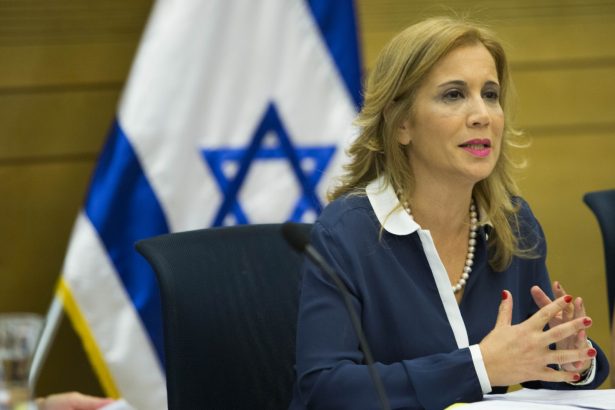
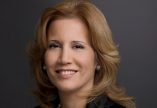
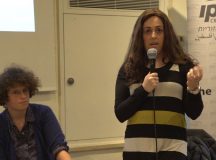
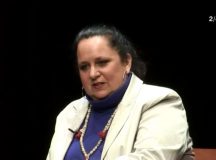
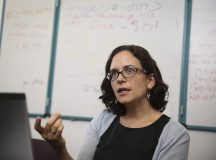
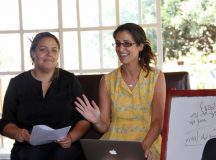































Comments are closed.